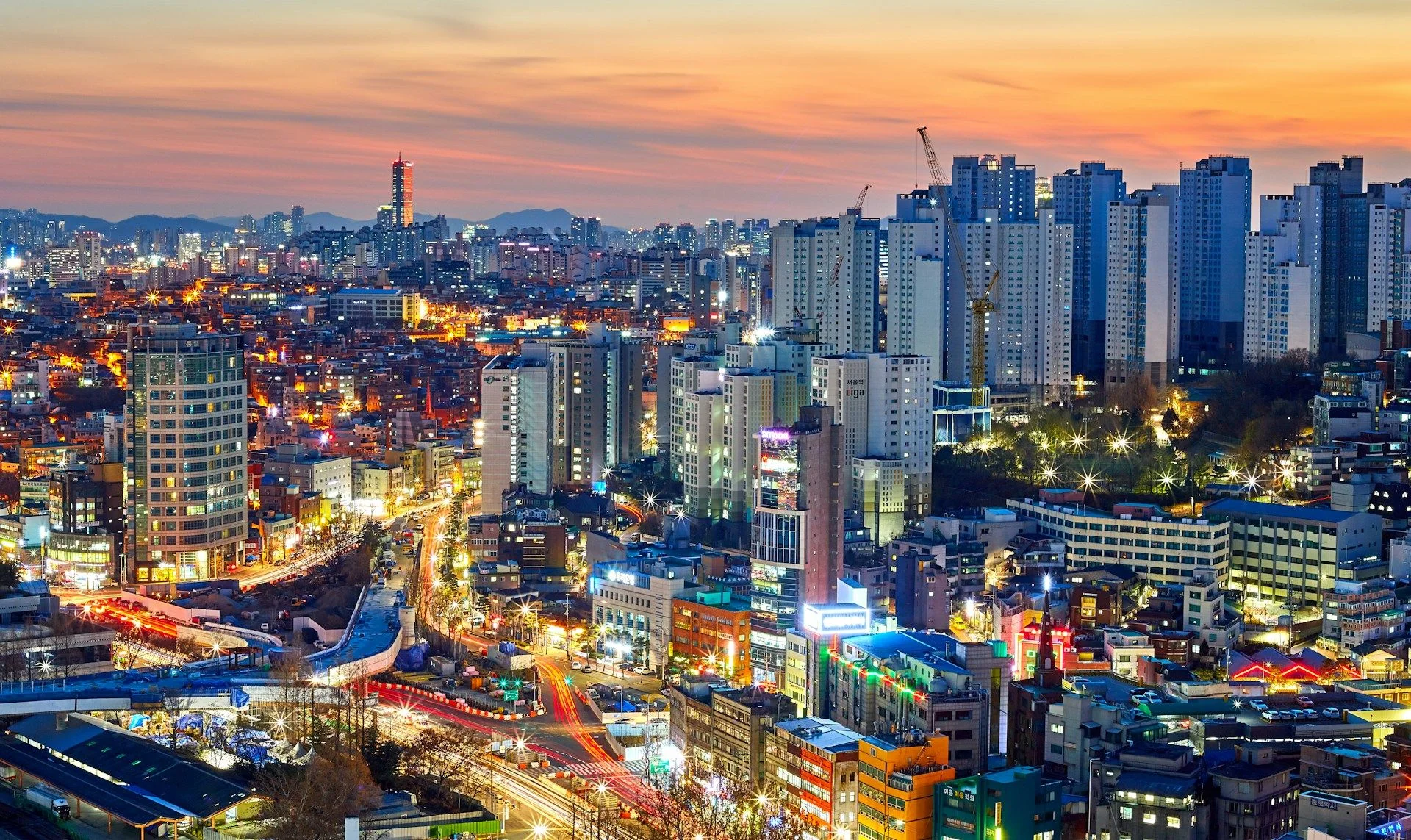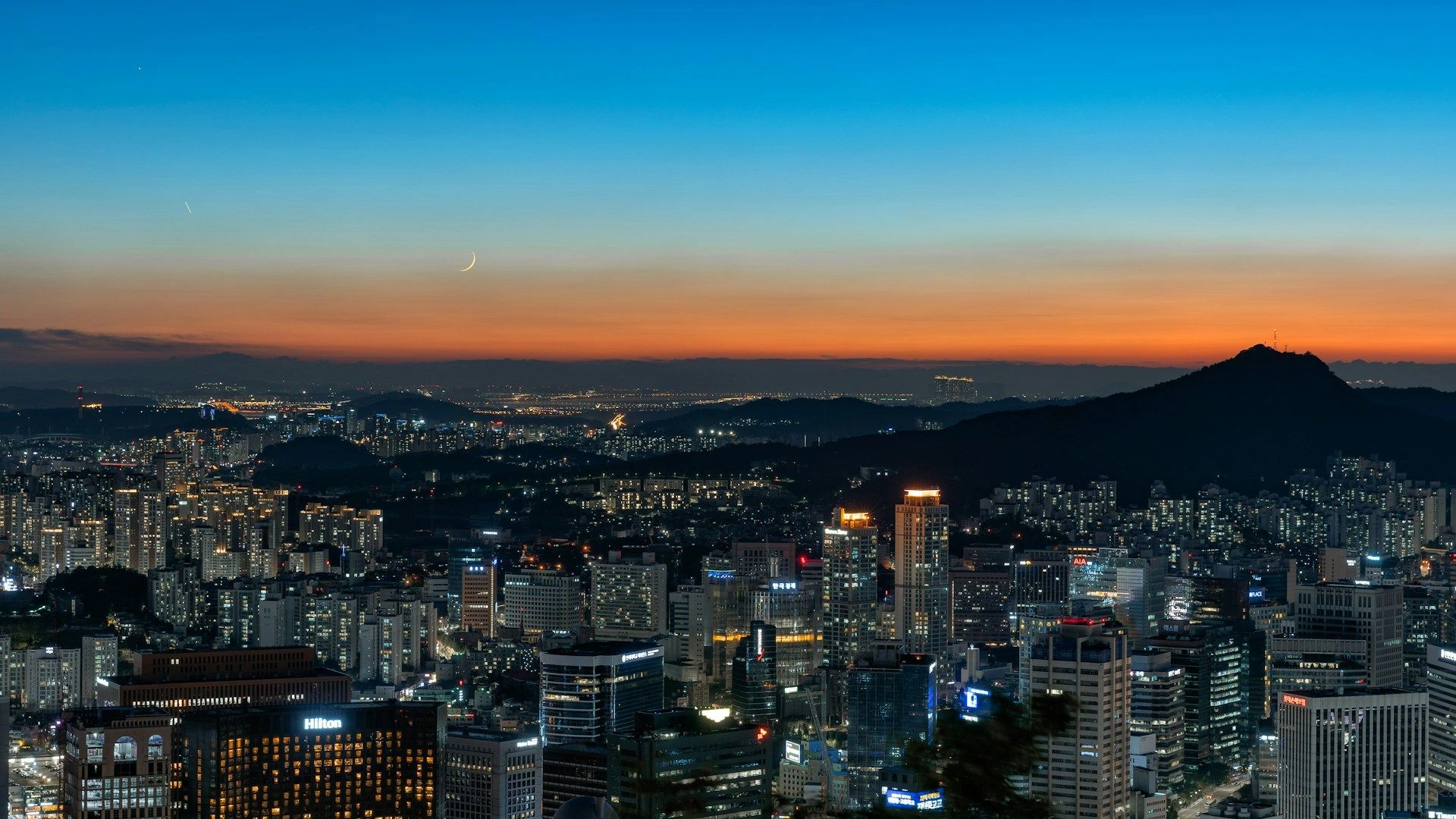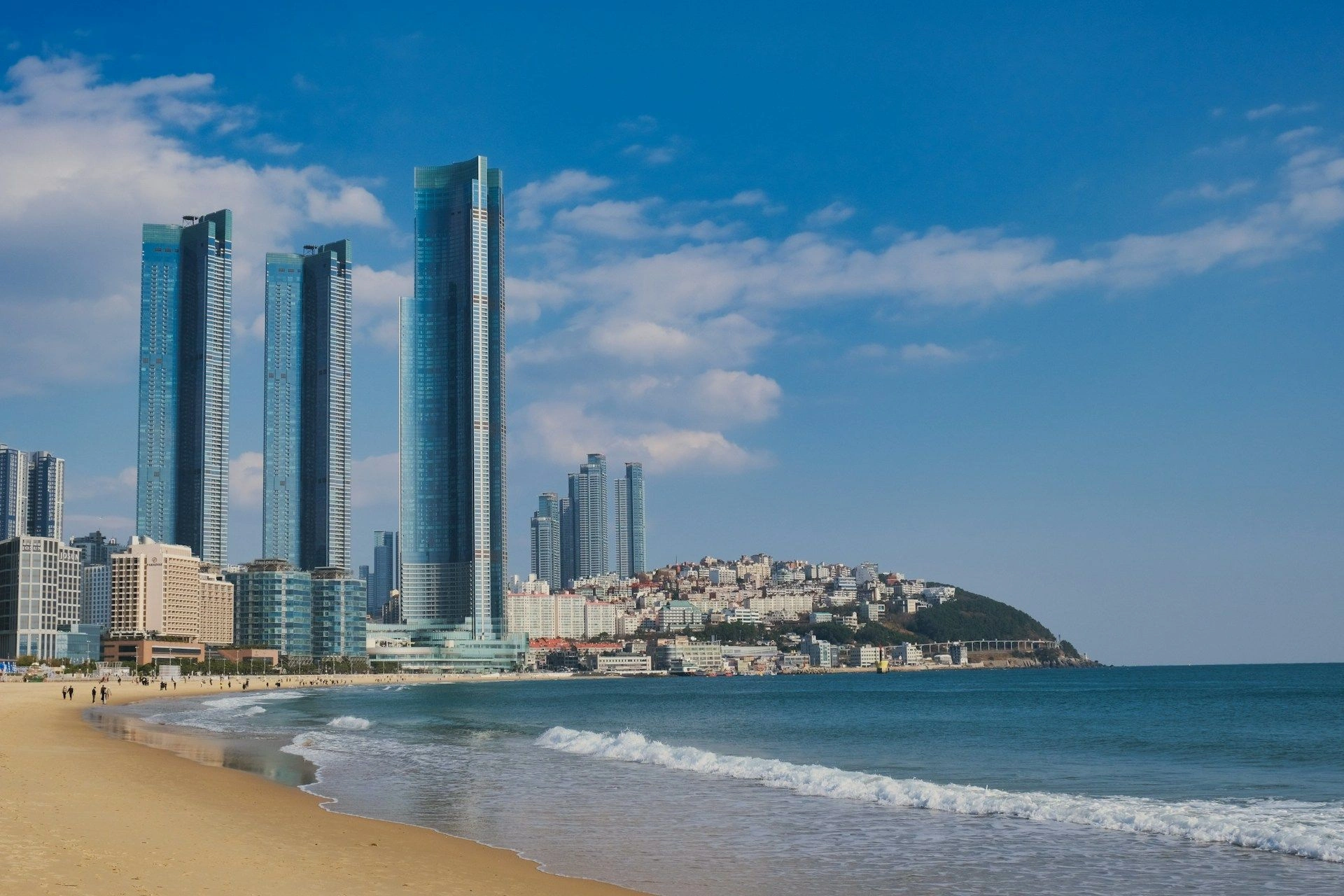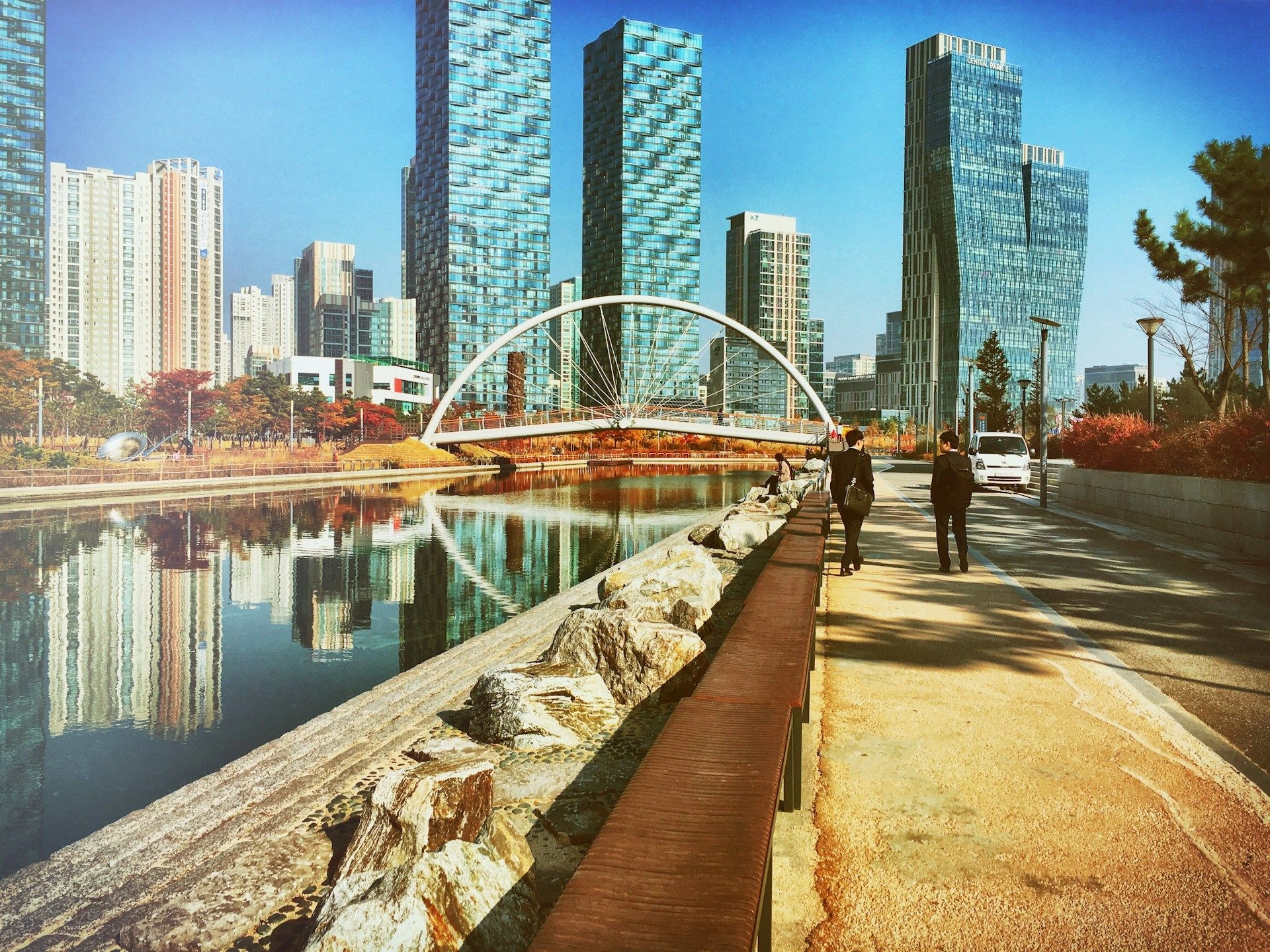Investment Real estate in South KoreaCoastal, tech-drivenand built for modern life

Best offers
in Korea
Benefits of investment in
South Korea real estate
High-tech urban living with property value stability
Major cities like Seoul offer strong infrastructure, public transport, and value retention in real estate.
Fast resale and rental demand in key areas
Districts near universities, business centers, and transit hubs show constant demand from renters and buyers.
Condos with security, amenities, and minimal upkeep
Modern apartments often include doorman service, gyms, and automated systems — ideal for remote owners.
High-tech urban living with property value stability
Major cities like Seoul offer strong infrastructure, public transport, and value retention in real estate.
Fast resale and rental demand in key areas
Districts near universities, business centers, and transit hubs show constant demand from renters and buyers.
Condos with security, amenities, and minimal upkeep
Modern apartments often include doorman service, gyms, and automated systems — ideal for remote owners.

Useful articles
and recommendations from experts
Real Estate Investment in South Korea: Advanced Market with High Barriers and High Rewards
Overview: Stable, Sophisticated, and Highly Regulated
South Korea has one of the most advanced real estate markets in Asia, characterized by dense urbanization, soaring apartment prices, and a strong regulatory environment. With a developed economy, world-class infrastructure, and transparent legal system, the country attracts domestic and international investors. Seoul, in particular, is a high-demand global hub, but it also presents high entry costs and intense government scrutiny aimed at curbing speculation. Other cities such as Busan, Incheon, and Daegu offer more accessible opportunities for residential and commercial property.
Types of Real Estate and Use Cases
South Korea’s property market is dominated by the following asset types:
- Residential apartments (APT): High-rise buildings are the most common housing form, especially in urban areas.
- Officetels: Mixed-use office-apartments often used for small businesses or single-person households. Attractive for investors due to flexible use.
- Commercial real estate: Retail stores, office towers, and logistics centers in major cities.
- Land plots: Rarely transacted directly by individuals; typically purchased for redevelopment projects or speculation.
Rental housing demand remains strong, particularly among students, young professionals, and foreigners in Seoul and tech cities like Daejeon or Suwon.
Ownership Rights and Legal Framework
South Korea permits both domestic and foreign individuals to own real estate under clear, codified laws:
- Freehold ownership: Foreigners can purchase land and buildings, including apartments and officetels, without restrictions on most types of properties.
- Reporting requirements: Foreign nationals must report property acquisition to the local municipal authority within 60 days.
- Building permits and redevelopment: Heavily regulated, particularly in zones designated for urban renewal or protected districts.
- Registration: All ownership must be recorded in the Supreme Court–managed registry. The process is transparent and efficient.
Foreign corporate entities also have the right to acquire property for business or investment use, though large-scale developments may require additional approvals.
Prices, Market Trends, and Investment Entry Points
South Korea's real estate prices are among the highest in Asia, especially in Seoul. Recent years have seen strong growth despite government efforts to cool the market:
- Seoul (Gangnam, Seocho): $10,000–15,000 per m² for new apartments; premium units can exceed $20,000/m²
- Busan: $4,000–7,000 per m² in central areas like Haeundae
- Smaller cities (Gwangju, Daejeon): $2,000–4,000 per m²
- Officetels (nationwide): $100,000–$500,000 per unit
Despite high prices, Korea's real estate is viewed as a safe store of value. Many investors seek capital gains, but tighter rules have redirected some focus to rental income and long-term holding.
Taxes and Transaction Costs
The South Korean government has implemented a multi-layered tax system to discourage property speculation. Key components include:
- Acquisition tax: 1.1% – 3.5%, depending on property type and value
- Capital gains tax: 6% – 45% for residents; up to 75% for non-residents or multiple-home owners
- Property holding tax: Annual property tax ranges from 0.15% to 0.6%, plus a separate Comprehensive Real Estate Holding Tax for high-value assets
- Value-added tax (VAT): 10% applicable to commercial property transactions and new officetels
Foreign investors should engage tax advisors to structure ownership correctly and avoid penalties, especially for multi-property holdings.
Rental Yields and Lease Systems
South Korea has a unique lease system called “jeonse,” alongside monthly rentals:
- Jeonse: A lump-sum deposit (often 50%–80% of property value) is paid by the tenant for 2 years, with no monthly rent. The owner invests the deposit and returns it in full at lease end.
- Monthly rent (wolse): A combination of small deposit and fixed monthly rent, similar to global standards.
Rental yields vary based on the structure:
- Officetel yields: 4% – 6% annually in Seoul, higher in smaller cities
- Apartment wolse yields: 2% – 4% in Seoul; 5%+ in provincial cities
Jeonse is popular for owners seeking capital access, while monthly rent suits long-term income strategies. Officetels are particularly attractive to foreigners due to flexibility and good returns.
Investment Scenarios
- Officetel in Gangnam: Purchased at $350,000 and rented at $1,200/month or under jeonse with $250,000 deposit, generating a 4.5% yield depending on structure.
- Redevelopment participation: Buy an aging apartment in Yongsan with government designation for future reconstruction; profits realized through resale at premium.
- Commercial space in Incheon: Acquire street-level unit near the port for $500,000, leased to franchise food tenant at 6% gross yield.
Top Cities and Districts for Investment
- Seoul: Especially Gangnam, Songpa, Yongsan, Mapo — global investment appeal, education hubs, and strong demand.
- Busan: Second-largest city with port and tourism traffic. Haeundae and Seomyeon are growing areas.
- Incheon: Linked to the airport and Free Economic Zone. Popular for logistic and commercial property.
- Daejeon and Suwon: Tech and innovation hubs with more affordable housing stock and growing infrastructure.
Risks and Regulations
While South Korea is legally safe, it has strict policies designed to suppress speculative investment:
- Loan restrictions: Limits on mortgage amounts for second-home buyers and in regulated zones
- Heavy taxes: Especially for multi-property owners or short-term capital gains
- Price caps on new apartments: Government-set limits in some districts to control affordability
- Tight foreign monitoring: All foreign property acquisitions must be reported and may be reviewed
Investors should also watch for currency risk, political dynamics with North Korea, and cyclical downturns in the construction sector.
Conclusion: A Prime Market for Sophisticated Investors
South Korea offers a mature, dynamic, and tightly regulated real estate market. With strong rental demand, infrastructure, and investor protections, the country is attractive for those seeking long-term gains in a stable environment. However, high taxes, complex lease structures, and strict policy controls make it better suited for informed and financially prepared investors. Seoul and second-tier cities like Busan and Daejeon continue to evolve as diversified investment destinations in East Asia.



